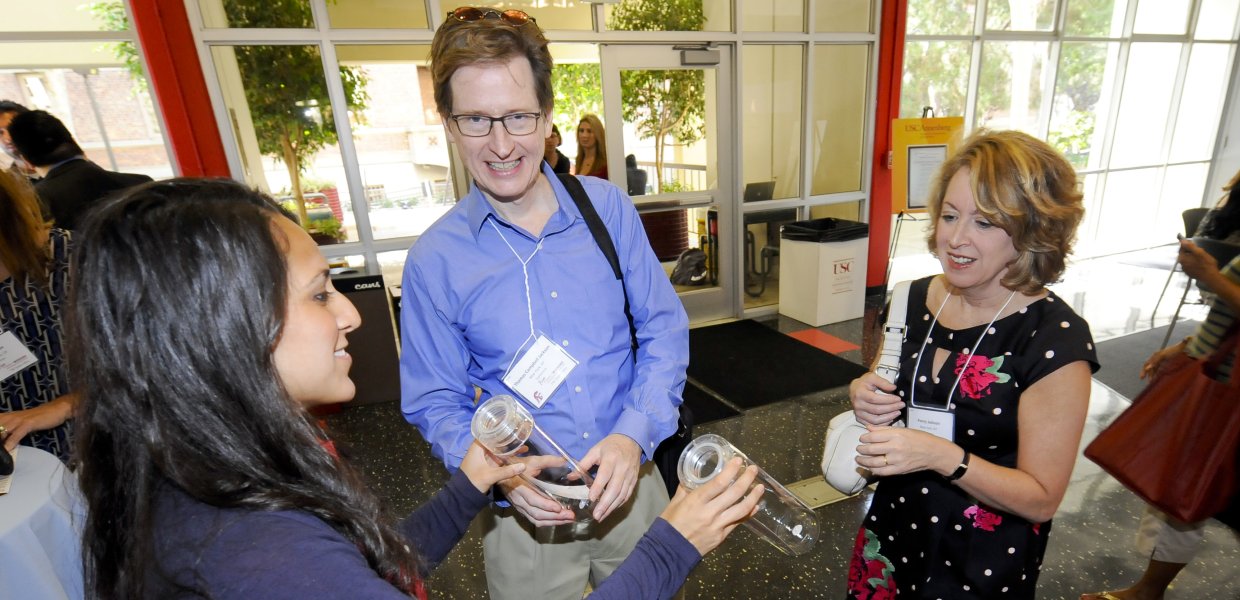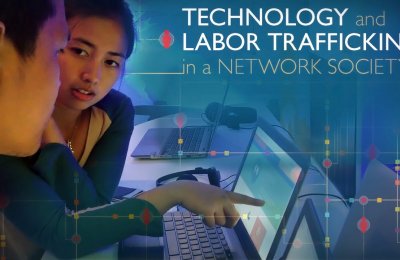Ed. note: Thomas Campbell Jackson and Penny Jackson have created a fellowship in science and technology for the USC Annenberg Master’s of Specialized Journalism program. The fund will provide scholarship support to “gifted journalists who seek a deeper understanding of a field of science and technology and the skills they need to interpret this knowledge for the widest possible audience.” The Jacksons are parents of a current Annenberg student and live in New York City.
USC Annenberg: What inspired you to support the Annenberg with this generous gift?
Thomas Campbell Jackson: Penny is a former teacher, and she and I have long been interested in education, and science education in particular. It just seems clear to us that education is the best route to progress on the world's many challenges and opportunities, and equally obvious that science and technology will always be essential. We've had the honor to be associated with some exceptional organizations doing remarkable work in these domains.
One of those organizations is USC Annenberg. The school first came to our attention through former Dean Geoffrey Cowan. And after our daughter—now a junior at Annenberg—enrolled at USC, we began to learn more about the great work being done here.
The school's cutting edge work in diverse media came as no surprise, and yet, as we got to know more about the school we were increasingly wowed with its wide range of subject knowledge. I have a background in public health, and was very impressed with Annenberg's deep bench in health communication. These days I am an investor in early stage companies, and I was excited to see lots of expertise in economics and entrepreneurship, including in the person of our exemplary Dean Ernie Wilson.
USC Annenberg: Why is a specialization in science and technology important in journalism?
Thomas Campbell Jackson: Science and technology have been themes throughout my careers, and I suppose I am a scientist manqué. Of course, most people will not be scientists or engineers, but all of us are impacted by science and technology. Sadly, the public's grasp of science has not kept pace with technological progress, or with our increasing understanding of reality. Adam Frank's New York Times editorial “Welcome to the Age of Denial” eloquently, if distressingly, highlights the backsliding in Americans' science literacy.
As science and technology advance ever more quickly, we are increasingly dependent on people who can investigate specific research, innovations, trends, possibilities and problems, and then effectively present this information to a lay audience. We need talented “explainers” to engage audiences and transmit information in a largely nontechnical way that is nevertheless meaningful and actionable.
Above all, we want to reduce the number of people giving up on understanding science because they think it is too difficult, or too boring, or even not relevant to them.
USC Annenberg: What are your hopes for this scholarship? What possible outcomes do you envision?
Thomas Campbell Jackson: It is not solely about making better-informed voters. We want journalists who communicate the joy that can come from understanding the world around us, both the natural world and the augmented one we are busy constructing. Great science journalism will inspire future generations of scientists, and armchair scientists.
So it is a very happy happenstance that we find ourselves at USC, as Annenberg already has faculty firepower. I recently had the long-awaited pleasure of meeting K.C. Cole, whose marvelous books I've been reading and recommending for years. I am very much looking forward to meeting Dan Birman, not least because he's doing a NOVA program on the Higgs boson and I am executive producer on the extraordinary new documentary Particle Fever, which is currently on the festival circuit.
The fact that Annenberg has communications know-how across diverse media is ideal. Although my wife and I are book people (we met at an independent bookstore, and our home probably qualifies as one), we appreciate all means of communication. I actually cofounded a film production company and help to run a film festival, both devoted to exploring science. Penny is just back from the Edinburgh Festival Fringe and working on a new play about genetics. We are both astonished with the explosion in science blogging and tweeting, and delighted by the growing DIY groups in science such as the Maker Movement and Citizen Science.
We can't wait to see the Specialized Master’s students these fellowships will support. We believe our investment in USC Annenberg will provide tremendous leverage in advancing scientific literacy. We just love the idea that each graduate will go forth with new expertise, and will use various media—perhaps even some as yet unknown—to investigate and inform, and potentially share the beauty and grandeur of science with vast audiences of readers and viewers across the country and around the globe. Dare I say, perhaps even billions and billions!








